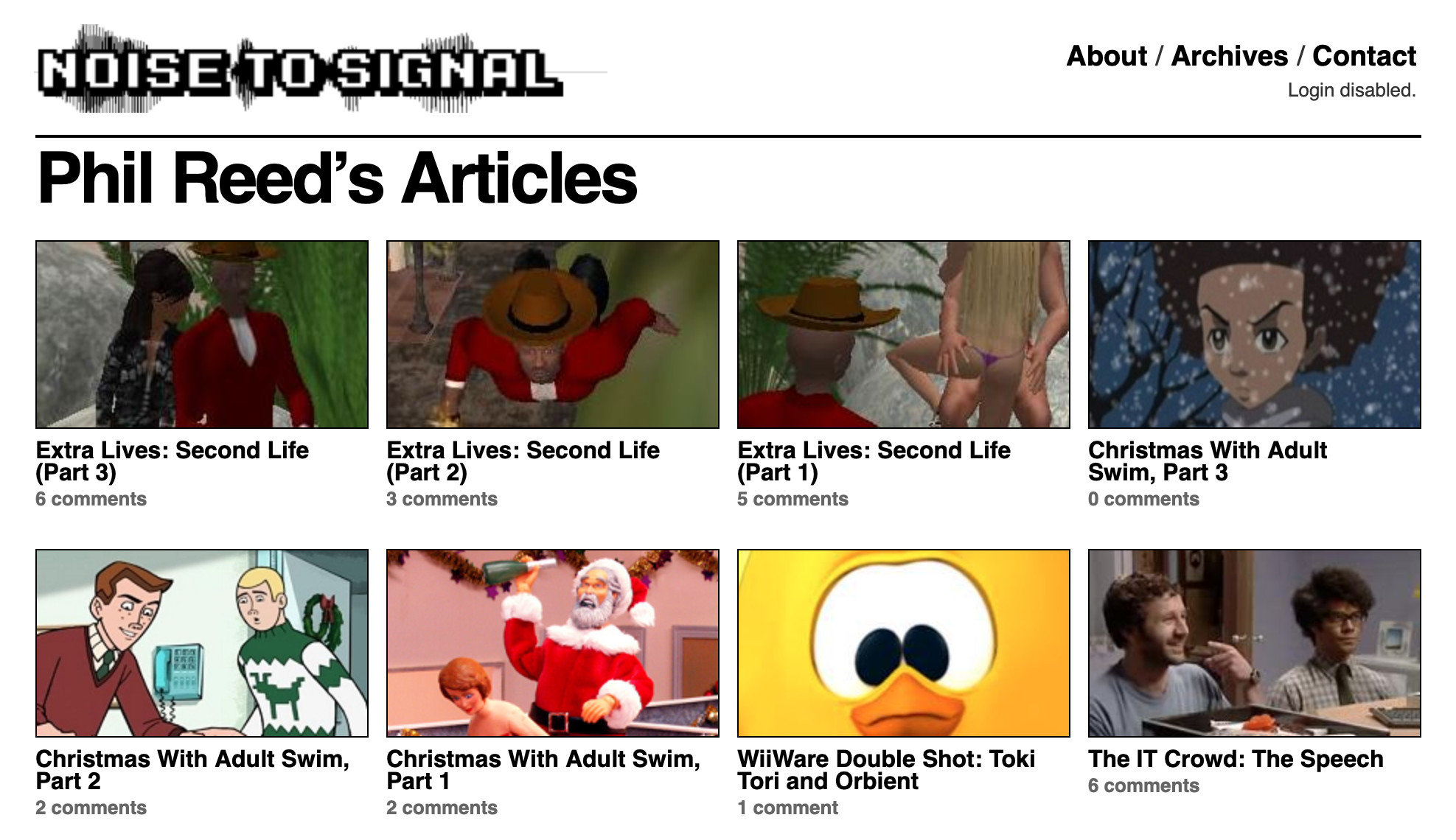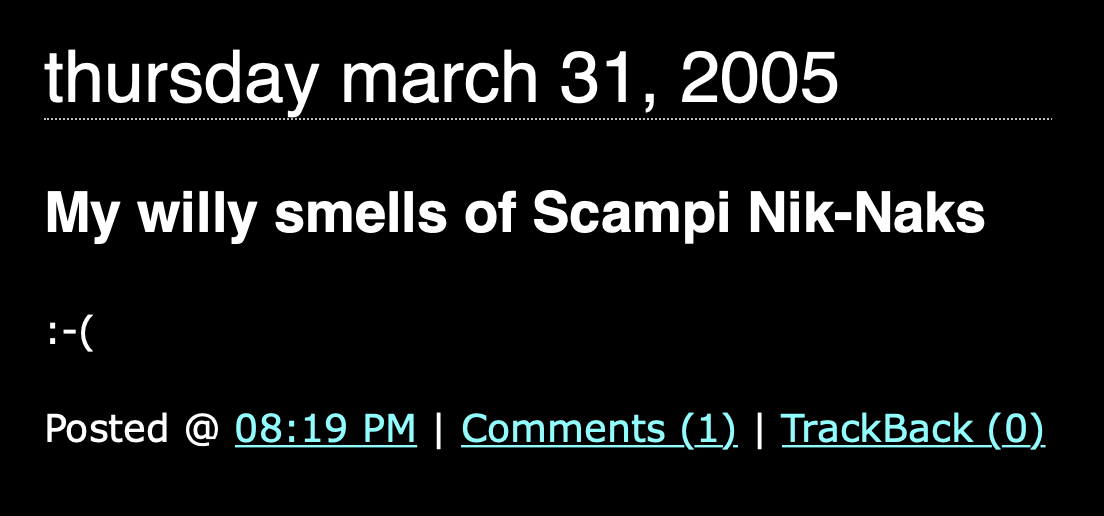Every generation discovers the same thing. As you get older, you have to deal with more and more people you know getting ill, or dying. Over the last few years, I’ve very much started to experience this.
So it was the other day, when I learnt the sad news of the death of Phil Reed. Phil was someone I’d mostly lost contact with over the last few years, though we did share some DMs a few months back about the possibility of him moving over to the UK. (A melancholic conversation all in itself, now.) But in the late 2000s, we got to know each other quite well, initially through Red Dwarf fandom, and then a little more broadly. And when I mooted the idea for a site which eventually became Noise to Signal back in 2005, he was an obvious person to get involved.
I’ve written about Noise to Signal on here before. A group blog where a bunch of friends all talked about media stuff we loved (and occasionally hated), it never quite took off, despite being published for a total of four full years until the end of 2009. In the end, we were all talking about slightly different things, and the site never quite coalesced into something that truly worked.
But that wasn’t through a lack of effort from Phil Reed, who was one of the most prolific contributors to the site, writing far more than I ever did. Phil clearly viewed the site and his work on it with some fondness; the name of his own site, Noiseless Chatter, was partly a reference to the old Noise to Signal. (Warning: his last post on that site is him saying goodbye; don’t click on that link without being prepared for it.)

Which is one reason that I felt especially bad that in the aftermath of Phil’s death, Noise to Signal was actually offline. When the site closed back in 2009, I made a point of saying the archives would remain available, and indeed they did for many years. Unfortunately, I was right in the middle of changing web hosts for all my old, legacy sites, and it took rather longer than I was planning. The result: a large chunk of his work from the late noughties wasn’t available for people to read.
Luckily, I’ve managed to bodge Noise to Signal back online. It really didn’t seem like an appropriate time for any of Phil’s work to be unavailable. And the reason for that is obvious: when someone who is known for their writing dies, one way people like to remember them is by revisiting their old work. I suspect a great many of us have gone back and read some of Phil’s writing over the past week. Sure, you can coax the Wayback Machine into giving you a version of the site, but it’s inevitably a less smooth experience, and it’s also not as easy to access. I couldn’t bear the idea of people wanting to read some of Phil’s old work for the site, and not being able to do so.
Family and close friends have photos, or other, more intangible memories. But if you’ve just read someone from afar – like a great many of people did with Phil Reed’s work – your relationship with them might not be with a photo, or with a personal memory of them in real life. It might be with a slice of their brain that they put online, which you responded to… and don’t want to lose.
And all this goes beyond people wanting to read Phil’s work right now, and speaks to a wider kind of responsibility. I’ve spoken many times about how I think people should keep their own writing online, but as I’ve always admitted, that is surely a discussion you have to have in your own head. But if you’re the custodian of an archive of someone else’s work, as I have ended up being with Noise to Signal, then things surely get a lot more complex.
There is, to be clear, no legal responsibility. But surely there has to be a question of a moral responsibility to keep a dead author’s work available for people to read and remember them by. And this is a particular issue for people like me and my friends, where we have done that weird thing: write for free on the internet. A commercial book can go out of print; that has its own issues, but is a different kind of problem. Closer, perhaps, is the idea of print fanzines in decades past: but there was surely no expectation for people to keep paper copies of an old author’s work, available to send out at all times.
With the web, keeping people’s memories of someone alive through their work is easier. To be sure, there are still costs and technical issues to consider, and I’m not thrilled with the idea that in 20 years, I might still have to spend time figuring out how to keep the archives of Noise to Signal online. But it’s far more possible to do so than it was in decades past. And the idea of letting someone’s work slip offline just doesn’t feel right, when that work is one of the ways that person lives on in people’s memories. And if that sounds overblown, well, I suspect that Phil of all people knew damn well the power that words could have on somebody.
So yes: every generation discovers the power of loss as they get older. But the brand new thing for my generation is being the custodian of public things which help people deal with that loss. It’s a responsibility that none of us signed up for… but is impossible to ignore.
After all, Noise to Signal contains the writing of more than one deceased person that people might like to remember.
Read more about...
archive



